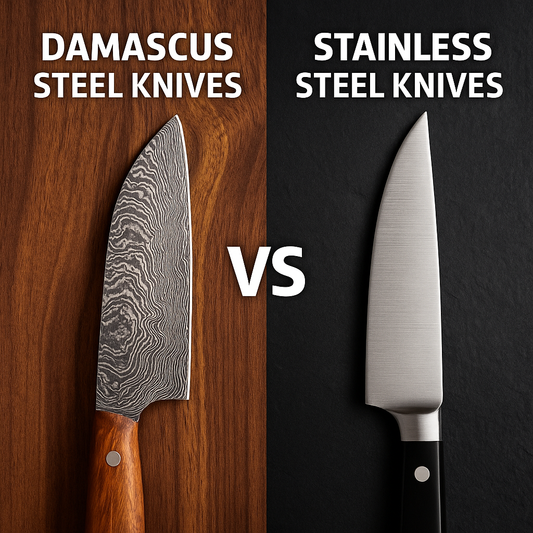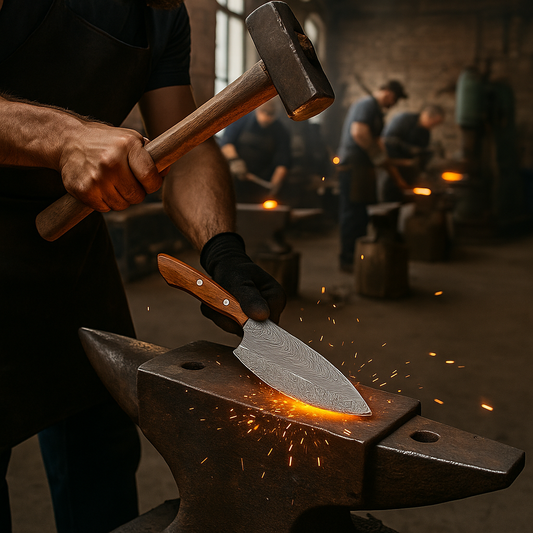Damascus vs. Stainless Steel Knives: What’s the Difference?

When it comes to kitchen knives, the debate between Damascus steel and stainless steel has been around for decades. While both have their place in kitchens worldwide, the choice depends on what you value most — tradition, beauty, and sharpness, or simplicity and low maintenance.
🔹 What is Stainless Steel?
Stainless steel knives are the most common in modern kitchens. They are mass-produced, easy to maintain, and resistant to rust and stains. If you’re just starting out, they’re affordable and practical.
Pros:
-
Affordable and widely available.
-
Easy to clean and maintain.
-
Resistant to rust and corrosion.
Cons:
-
Dulls faster and requires frequent sharpening.
-
Lacks the uniqueness and artistry of handmade knives.
-
Often mass-produced with less attention to craftsmanship.
🔹 What is Damascus Steel?
Damascus steel knives are forged using multiple layers of steel, folded and hammered to create blades that are both functional and stunning. The signature wave-like patterns are not just beautiful — they also represent strength and tradition.
Pros:
-
Exceptional sharpness that lasts longer.
-
Unique handmade patterns — no two knives look the same.
-
Strong yet flexible, making them highly durable.
-
A blend of art and performance.
Cons:
-
Requires a little extra care to maintain.
-
Higher upfront investment — but built to last a lifetime.
🔹 The Key Differences
| Feature | Stainless Steel Knives | Damascus Steel Knives |
|---|---|---|
| Sharpness | Dulls quickly, needs frequent sharpening | Razor-sharp edges that hold longer |
| Durability | Prone to bending or chipping | Strong, flexible, and long-lasting |
| Aesthetic | Plain, industrial look | Unique wave patterns, functional art |
| Price | Budget-friendly | Premium investment |
| Craftsmanship | Mass-produced | Hand-forged by skilled artisans |








